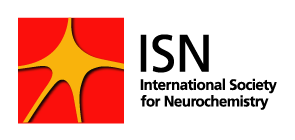Welcome to another monthly YSSC article! This time we would like to take you back to a series that we had started nearly 2 years ago. It is called “A closer look at Neurochemistry” and, just to avoid confusion, this is precisely what it is. The members of the YSSC have used our newsletter slot and the fact that we are distributed all over the world to make interviews with young scientist at their local scientific environment, giving us a sneak peek into the current situation and future prospects of neuroscience and neurochemistry.
The idea behind this was that we could learn more about each other as scientists and members of the same society. Today we are going to have a look at these articles again to do a summary of what we have learned so far. This does not mean that the series is finished – it is just a check-up in between, as you know doing face-to-face interviews is not really fashionable at the moment.
Before we go into details, we would like to say a big thanks to everyone who took the time to answer our questionnaires and shared their thoughts with us! So far we have collected answers from Port Harcourt (Nigeria), Edinburgh (UK), Rio de Janeiro (Brazil), St. Louis (US), Tokyo (Japan) and Seoul (South Korea). Instead of giving you graphs and numbers for who answered what to which questions (even though we all love a graph, of course), we will just try to give you the gist, the general feeling that came across when going through the answers. Otherwise, it is a surprising amount of data, despite the fact that we had asked “only” between 5-20 people per location. This implies of course that we do not display an in depth analysis, so please don’t take this as full representation for the whole region we are looking at. It is just to get you and us to think about it.
Starting with the most striking point that was common over almost everyone participating. No matter where they were from or at which career stage they were: Neuroscience is very important and people are highly engaged with it, eager to develop it further and feel a sense of pride to be a neuroscientist/neurochemist. However, there are big differences as to the position that neuroscience is given at different universities or research centres, and how many, if any at all, courses are offered that tackle it.
Edinburgh, St. Louis as well as several cities in South Korea were described as hots spots with lots of options for people to get in touch with neuroscience. This could explain why scientist from UK, Japan, South Korea and the US were rather confident about their scientific background skills and saw more room for improvements in translation to medical questions and soft skills. Students in Nigeria however, despite being extremely keen, usually have a very hard time finding courses or mentors to help them find their way towards neuroscience. State of the art technologies as a reason to work in neuroscience seem to be a particular feature of the US, as several people from outside the US brought this up as a reason to go there, and participants from St. Louis raised this as one of the most exciting aspects of their work.
Another point that was made very clear is the meaning of international connections and the options of going abroad to other labs or even to build up your own lab at a university in another country. Interestingly, this was mentioned as a key goal particularly for young scientists in Edinburgh, Rio and Port Harcourt. Particularly people from Nigeria confirmed that the main purpose of going abroad was for learning and connecting, but not settling down abroad, as they wish to come back to their own country to develop neuroscience there.
Postdocs from Tokyo, Edinburgh, St. Louis and Rio especially mentioned that short contracts and highly competitive funding programs are a major concern for them, imposing a lot of pressure on them and challenging their desire to stay in academia. Strikingly short contracts do not seem to be an issue in South Korea, as none of the participants questioned or mentioned them as a worry. Why is that? Might be worth checking that out in more detail, folks!
As you can guess from the fact that we said several times this would be a brief summary and the article still being longer than usual: There is more! It was great looking through the notes again and we look forward to continue with this series to convey a better overview and represent regions that we have not looked at yet. The bottom line for now is: the circumstances that are different, but the passion for neuroscience is not. You might think that we knew this before. That’s true, but as long as it is still the case its worth drawing attention to it. You want to do the interview yourself? Well, here are the questions we asked the participants:
- How important is neuroscience at your university? Are many people interested in it; is there a neuroscience program offered?
- Where would you like to work be in 5 years’ time career and location-wise?
- Which skills do you need to pursue the career you want (in/out of neuroscience)?
- What would be your hopes/wishes for neuroscience in your region?
- What are the main difficulties and particular good things you are facing in your daily work life (lab and office-wise)?
- What do you think international societies could do to help and what are the main advantages for you to be in a society?
What does a closer look at neurochemistry reveal for you?
See you next month,
Your YSSC
